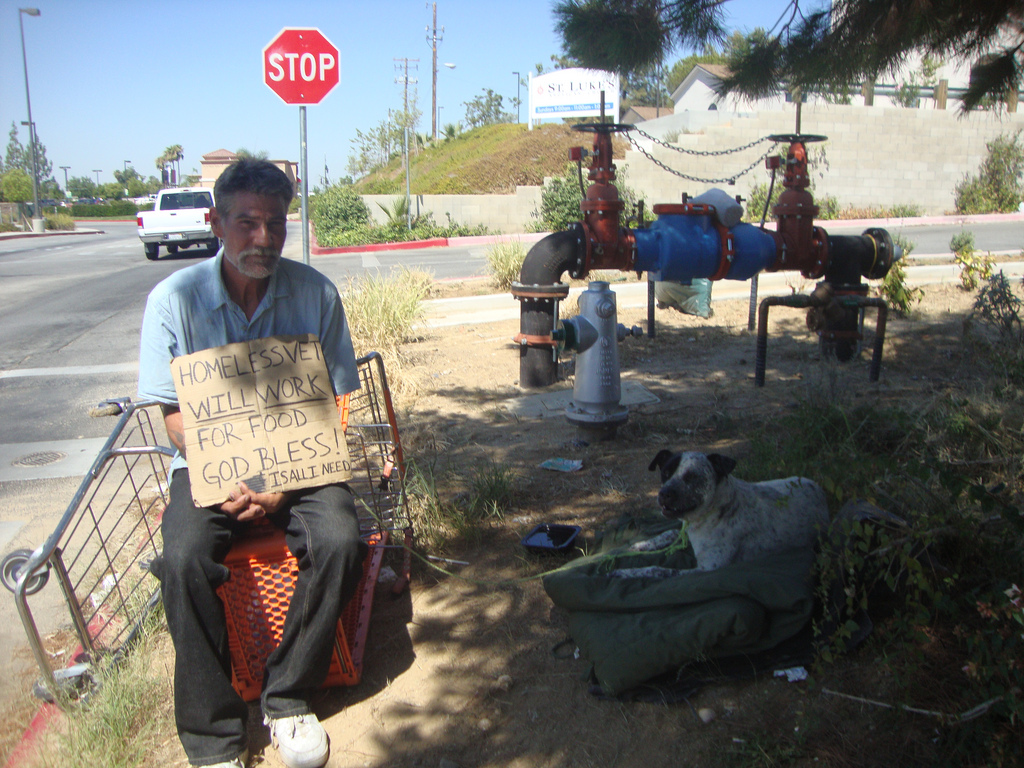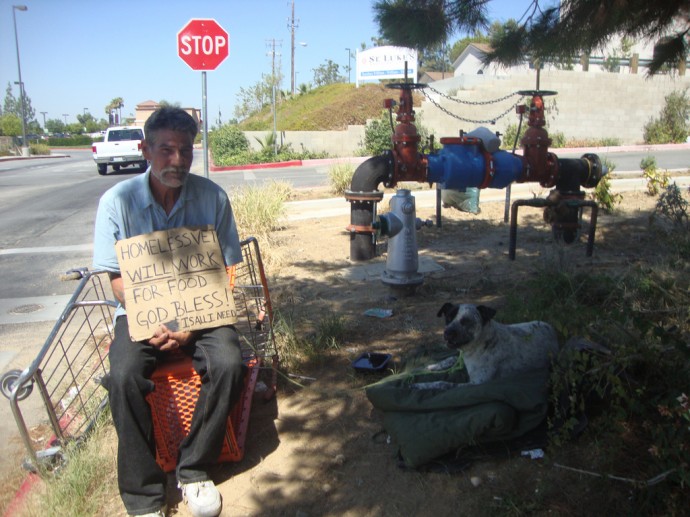(MintPress)—New census data reveals that in America, the world’s richest country, a record number of people — nearly 1 in 2 — have fallen into poverty or are subsisting on earnings qualifying them as low income.
And- even more shocking perhaps is the statistic from a study done by the National Law Center on Homelessness and Poverty which reveals approximately 3.5 million people, 1.35 million of them children, are likely to experience homelessness in a given year.
That information, and the knowledge that there are currently about 18.5 million vacant homes in the U.S. is prompting some very prominent NGO’s to take action. The National Economic and Social Rights Initiative along with Amnesty International are calling on the U.S. government to address the foreclosure crisis, creating a housing finance system that fulfills human rights obligations.
.
Call to action
A blog post on Amnesty Internationals’ official site argues,
“Housing is a basic human need and a fundamental human right. Yet every day in the United States, banks are foreclosing on more than 10,000 mortgages and ordering evictions of individuals and families residing in foreclosed homes. The U.S. government’s steps to address the foreclosure crisis to date have been partial at best. The depth and severity of the foreclosure crisis is a clear illustration of the urgent need for the U.S. government to put in place a system that respects, protects and fulfills human rights, including the right to housing. This includes implementing real protections to ensure that other actors, such as financial institutions, do not undermine or abuse human rights.”
And the issues of poverty and homelessness are also being taken up by other activists, such as those affiliated with the Occupy movements. One blogger associated with the group – whose slogan “We are the 99 percent” harkens to the economic divide between 99 percent of Americans and the richest one percent of Americans, wrote “Based on these numbers, if we gave every homeless American a home, the banks would still own another 15 million homes, many of which were fraudulently gained in the first place. Unfortunately, our justice system has determined that the bankers who collapsed our economy to make a quick buck will get off with a mere slap on the wrist, if that.”
Critics of corporate greed point out that while arrests of Occupy movement protesters, who have peacefully been demonstrating to call for a variety of social reforms in the U.S. have reached into the thousands, and are still climbing, not one arrest or prosecution of a single high-ranking Wall Street official or major financial firm has been occored. Fraud and financial misrepresentations played a large role in the financial crisis in the U.S. that has been ongoing in the last few years.
.
What’s the problem?
What’s in a name? Alice Lyman Miller, a Professor of National Security Affairs at the Naval Postgraduate School, defines a superpower as “a country that has the capacity to project dominating power and influence anywhere in the world, and sometimes, in more than one region of the globe at a time..” So, why can’t the U.S. – a country which prides itself on its super power status – seem to influence and fix problems like poverty and homelessness in its own backyard? Why are so many Americans are living like those in a third-world country?
Sheldon Danziger, a University of Michigan public policy professor who specializes in poverty told CBS News,
“Safety net programs such as food stamps and tax credits kept poverty from rising even higher in 2010, but for many low-income families with work-related and medical expenses, they are considered too `rich’ to qualify. The reality is that prospects for the poor and the near poor are dismal. If Congress and the states make further cuts, we can expect the number of poor and low-income families to rise for the next several years.”
The American economic crisis, and a perceived failure to address growing problems of poverty in the U.S. is what has prompted the National Economic and Social Rights Initiative and Amnesty International to ask the U.S. government to step up its efforts to address the foreclosure crisis, including by giving serious consideration to the growing call for a foreclosure moratorium and other forms of relief for those at risk, and establishing a housing finance system that fulfills human rights obligations.
.
Political responses
Wednesday President Obama, while in Virginia, discussed his latest plans to address the housing crisis. A Wall Street Journal article authored ahead of the President’s remarks leaked some of the details. In addition to lowering interest rates for current borrowers having trouble making ends meet, Obama announced a program that would allow the sale of foreclosed homes by Fannie Mae to investors who could then rent the properties. Obama administration officials noted a high demand for rental housing in unveiling the plan, adding that the program would also sustain neighborhoods by keeping foreclosed homes from falling into disrepair. The administration hopes to pay for the program via a fee on large banks, which Republican legislators have stated opposition to.
Republican presidential candidate Mitt Romney was also in the news Wednesday in connection to issues of poverty in the U.S. – after saying that he’s “not concerned about the very poor” because they have an “ample safety net” which he said he’d fix if it needed repairing. Multi-millionaire Romney made the point in a CNN interview after his victory in the Florida GOP primary Tuesday night, adding “You can focus on the very poor, that’s not my focus.” Romney has also stated that he believes that U.S. foreclosures should be allowed to run their course.
Peter Sabonis, Director of Human Rights to Housing for the National Economic and Social Rights Initiative says that while it’s “incomprehensible” that the housing crisis in the U.S. has reached such epic proportions, given “the centrality of housing to our lives”, he suggests that lawmakers start thinking outside of the box. While Sabonis believes much of the blame lies with the private sector, the goal of the government should be to “meet the needs” of its citizens.
“This is a real historic opportunity,” Sabonis commented, from his office in New York, “it’s not difficult to construct national programs that further encourage an end to problems of poverty and homelessness in America.”
Source: MintPress
.



